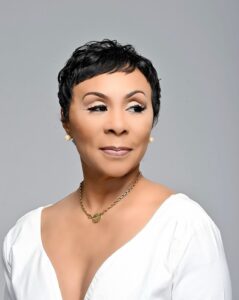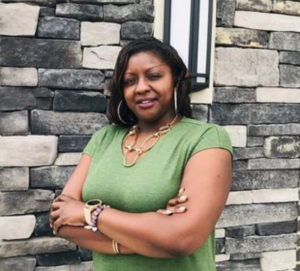About Courtwatch PG
Our Story

Dr. Carmen Johnson
Director of Courtwatch & Judicial Accountability
for Courtwatch PG
Author of The Pretense of Justice
"We believe that our institutions put far too much faith in violence and force, and far too little faith in love and supportive services"
Courtwatch PG is a growing community of volunteers from Prince George’s County, Maryland and the surrounding Washington, D.C. Metropolitan area — and beyond. We observe bail hearings in PG County District Court to document our county’s policies in action and to hold judicial actors accountable for injustice in the court system. Courtwatch PG is powered by Life After Release, and founded and led by formerly incarcerated Black women. We courtwatchers represent all ages and backgrounds. We are joined by the call to anti-racist action and by faith in abolitionist futures.
We courtwatch Prince George’s County bond hearings to call out injustice.
Your bond hearing can jail you for weeks or months without trial
Your bond hearing can jail you for weeks or months without trial because it jails you before trial. You may lose your job and so perhaps your home. Your family may lose their home. You will be treated as though convicted: subject to intentional humiliation, permitted little outside contact, bullied at the whim of your cellmate or CO, exposed to disease, and kept from decent medical care. Your physical and mental health are likely to suffer permanent damage. You may plead guilty to the charges even if you are innocent, hoping for early release—and so be branded with a record that can keep you out of work and out of housing. What will you do then?
The hearings are often ill-informed
Bond hearings last just a few minutes. If you are poor, your public defender will have only minutes to speak with you in advance, sometimes having to shout through a locked jail door – or no access at all. For bond hearings, judges normally assume the truth of statements from a police department accustomed to lying and rife with racism and violence.
The rulings often discriminate against the poor
By law the judge cannot impose more bail than you can afford. That is one of the important rules we sometimes see judges violate, even intentionally.
The hearings are often fake
Legally and constitutionally, you cannot be jailed without trial except by a judicial officer in a prompt and public hearing where you have a right to an attorney, and strict rules apply. But several times a day we see judges “decide” to hand off the decision to a shadowy agency in the jail that holds no hearings, takes weeks to decide, and may not even tell you if it has decided to keep you locked up. Hence, using information from our courtwatchers, a team of Georgetown University lawyers and others have filed a federal lawsuit against the county on behalf of hundreds of unconstitutionally jailed people.
We courtwatch to fight structural racism.
Our history of colonialism and slavery
Our history of colonialism and slavery tends to divide us into better-off white people and worse-off Black and brown people, marked as potential enemies in each other’s eyes, so that the comfortable do not think in terms of the common good.
Law enforcement and media together
Law enforcement and media together seem to focus more on crimes of the poor and desperate, hence mostly Black and brown people, than on crimes of the powerful who influence enforcement budgets: crimes such as wage theft, industrial pollution, monopolistic control over public media, etc. When bad policies leave people desperate, the signs of the problem can be suppressed by setting the police against those who are hurting most.
The explosive growth of America’s jails and prisons
The explosive growth of America’s jails and prisons in recent decades has served to perpetuate poverty, racial division, and mutual fear. There are about as many people currently jailed without trial in the United States as the entire jail and prison population of India, without any apparent benefit to public safety.
"We courtwatch to be good neighbors and work toward a loving society."
Some of us have suffered directly at the hands of the criminal legal system. But we are all part of the human community.
In the long run, we are working for a better world, where our main response to each other’s desperate needs and stumbles is not the gun, the cage, and the branding iron. Today, we are standing up for our neighbors when they need us.
